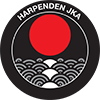HARPENDEN KARATE CLUB
Grading
Preparing every student for their Harpenden karate grading
Harpenden JKA gradings take place twice a year, usually on a Saturday. We often run the gradings jointly with other clubs such as Ataru, our JKA friends in Hitchin, run by Sensei Jamie Thompson. It’s a very exciting and busy day for all of us. Harpenden karate gradings take a lot of preparation in advance: deciding who’s ready to grade and making arrangements for our visiting examiner, finding a suitable venue, buying new belts and personalising JKA certificates. It’s a long day and, naturally, a nervous one for those grading but we prepare every student (and their families) for what to expect.
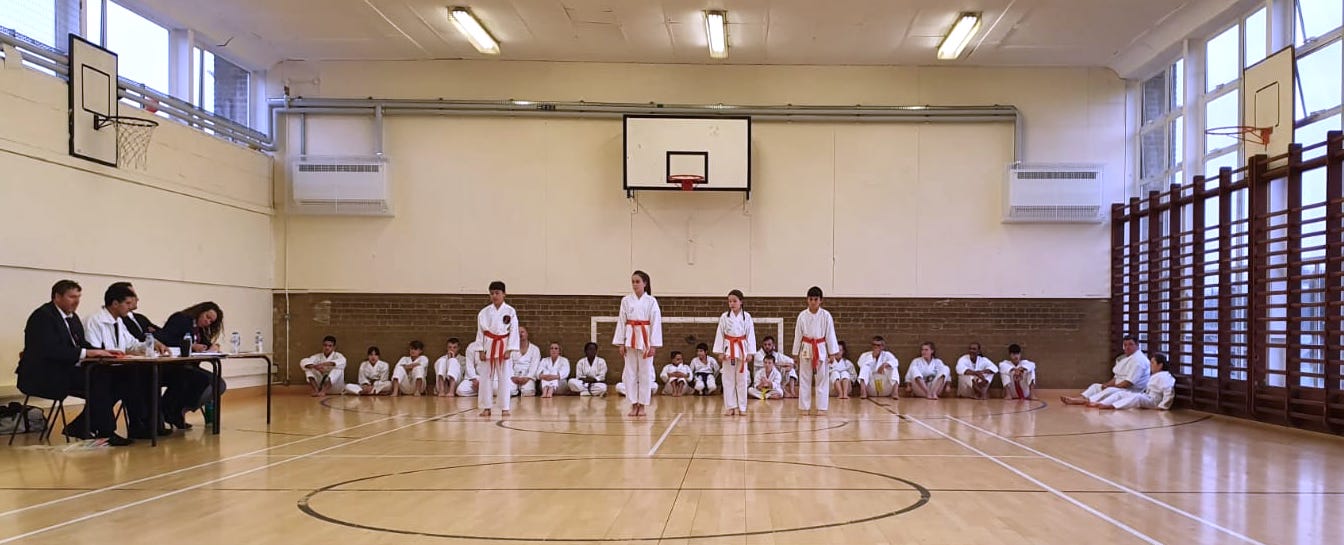
What can you expect from a Harpenden karate grading?
Grading day starts at 10am and usually finishes at around 4pm. There are 2 kinds of grading:
- JKA Club: for white (9th kyu) to brown plus 2 stripes (1st kyu taking shodan)
- JKAE: for Shodan and above. These take place as part of national or international courses, with JKAE’s Chief Instructor, Sensei Ohta or instructors visiting from Japan.
Harpenden karate club gradings involve training in the morning followed by the grading in the afternoon. Any JKA student is welcome to train in the morning but for those grading it’s compulsory. Basically, it’s a fabulous opportunity to get yourself in the right frame of mind.
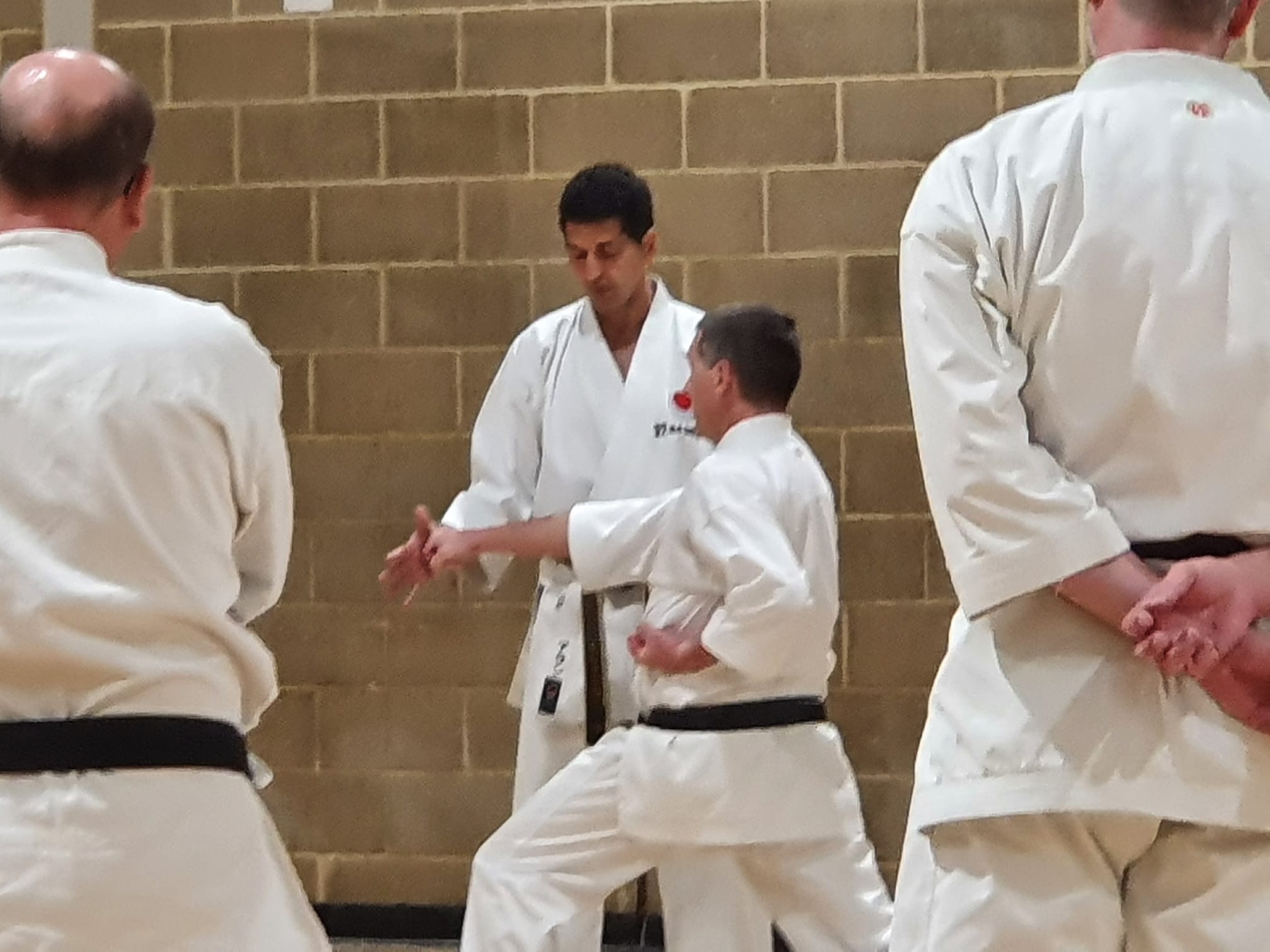

Time to grade
Then after a quick break, we get the room ready for grading: examining table and chairs out, grading licences in order, club banners in place, snacks to hand and we’re ready to go. (There’s usually a seating area for parents and friends to watch.) Students are called up in grade order (4-5 at a time), starting with the white belts (9th kyus). Each student is examined in the 3 areas they’ve been training in the dojo over the previous months:
- Kihon – basic blocking and attacking techniques
- Kumite – blocking and attacking techniques with a partner for (8th kyus and above)
- Kata – a set pattern of moves showing specific blocking and attacking techniques
There’s a lot of encouragement from parents, friends, other students throughout the day. That’s what matters at Harpenden JKA – we train and grade as a club, and support each other.
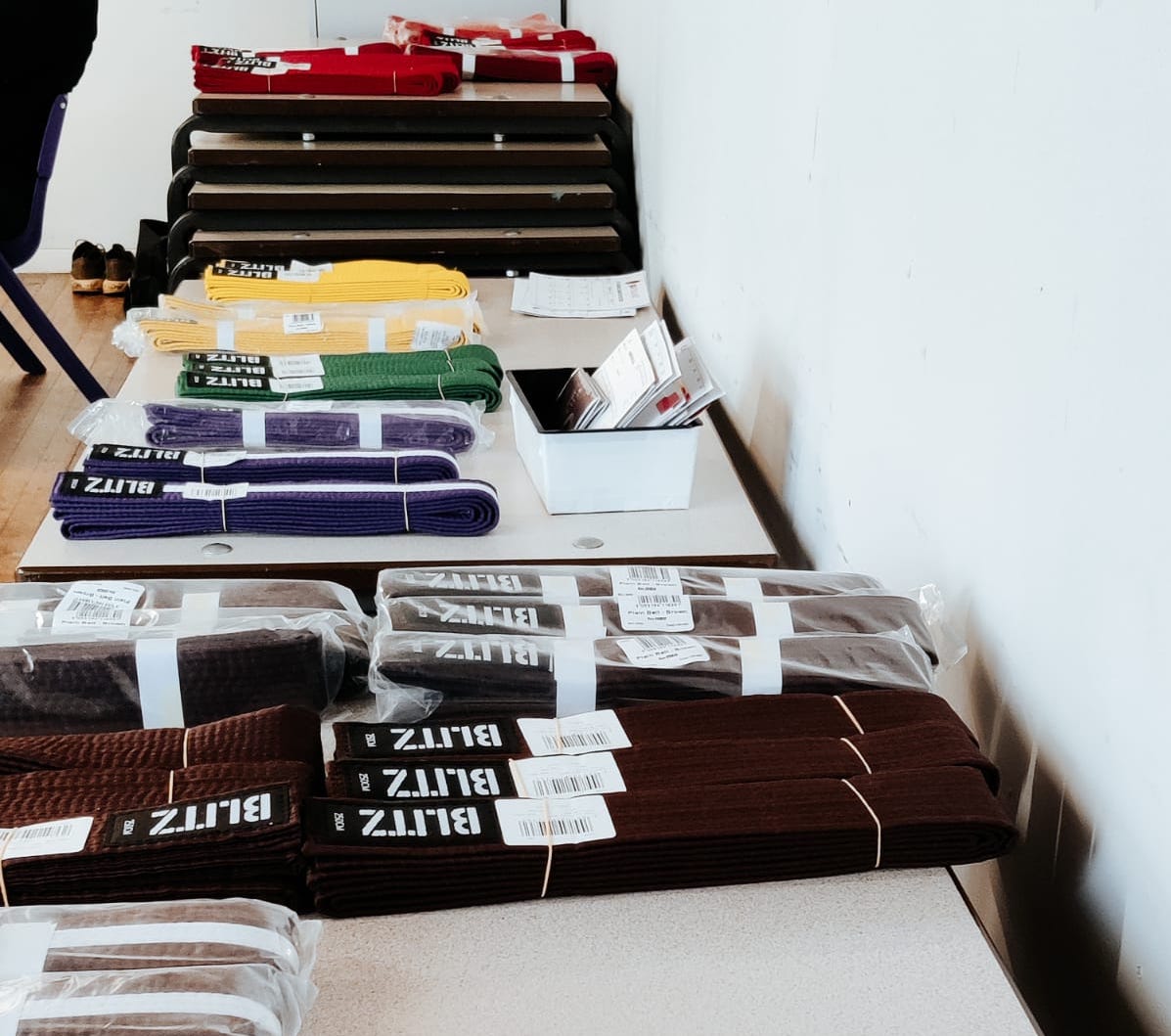
Are you ready to grade?
Grading isn’t an automatic right with the JKA – students earn their place on the list. HJKA certainly aren’t a belt-chasing club. We have a duty of care towards our students because when they’re put to the test in the dojo or (hopefully not) on the street, they need to be confident in what they can do. We have a reputation for the highest standard of karate. We’re affiliated to the JKA and observe their standard of instruction. This means you can join any JKA club and be sure the standard of Shotokan karate is the same high level wherever you go. We work hard as instructors, taking into account individual circumstances and abilities. It’s our job to help students to enjoy their karate and reach their potential. Consequently, this is reflected in our grading decisions.

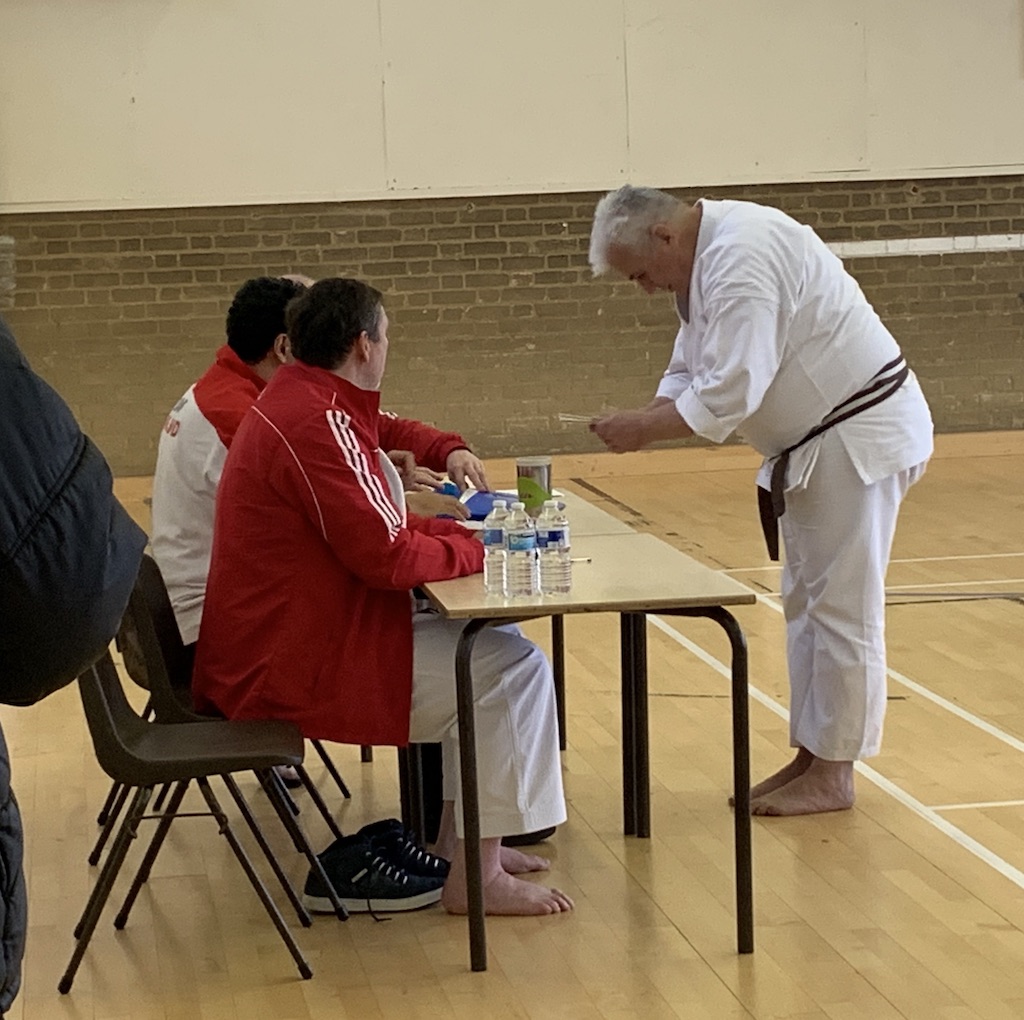
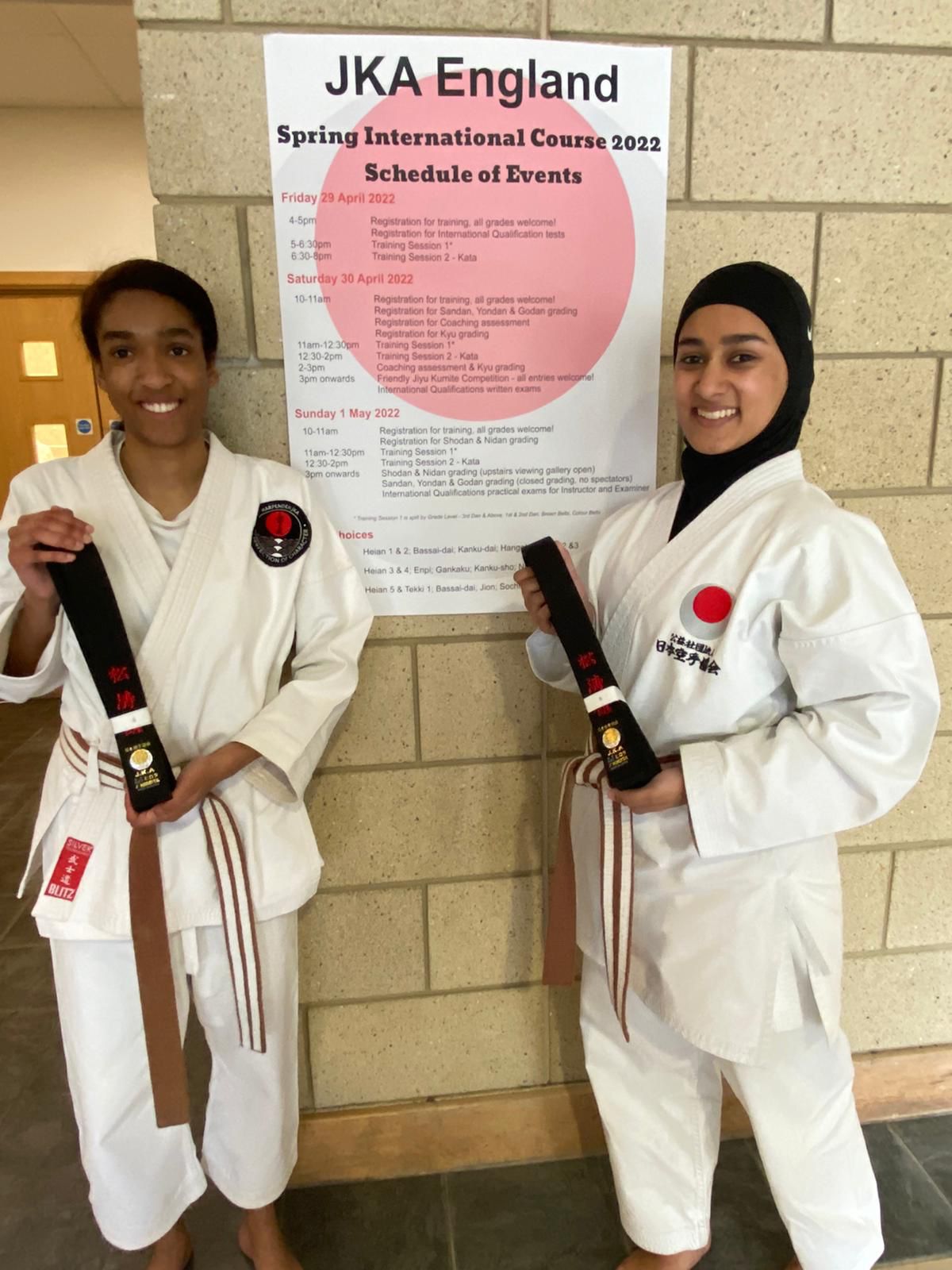
Harpenden JKA Grading Rules
These are the rules of our club, based on the standard set by the JKA. They apply to every student.
HJKA Grading Rules 1-11
- As mentioned above, students are invited to grade so don’t get upset if you aren’t selected.
- Bring your (valid) JKA licence, with your personal details completed including a passport-type picture that’s a good likeness. We need licences to be handed in a month in advance of grading so we suggest you don’t leave renewals to the last minute.
- There’s a grading fee to cover our costs for holding a JKA-recognise grading. This is confirmed nearer the time.
- The grading venue and times will change, but generally this is the format:
- Club grading (eg kyu grades), takes place on a single day. In the morning, there are two training sessions taken by the examiner sensei (first session for senior grades second one for junior grades) followed by the grading in the afternoon. The training sessions are open to all club members so don’t miss an opportunity to train with a senior sensei.
- Dan gradings are usually weekend events comprising training sessions (open to all grades) on Friday evening, Saturday and Sunday morning, followed by the grading on Sunday afternoon. These are often international events with a large contingent of JKA senseis flying in from Japan to take the training sessions and the grading.
- Don’t forget to bring a clean and pressed gi, plus a white t-shirt to wear underneath (girls and women). Bring your current grade of belt too.
- 1st kyu and above must bring mitts, gum shields, and chest and groin protection.
- Do not weary jewellery, Fit-bits or watches. If necessary cover earrings and rings securely with tape.
- Bring food and water – it’s a long day and you must keep your energy levels up.
- Arrive at least 20 minutes before your training slots – parking can be difficult at certain venues.
- Show respect throughout the day: react quickly to instruction and always respond with “Oss Sensei”.
- Keep an eye on the club WhatsApp group for final details.
Good luck if you’re grading
If you grade, you can be sure you’ve reached a high standard – even if you don’t pass and have to retake. Remember karate is a journey – your journey – and so much more than getting the next belt.
